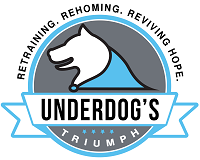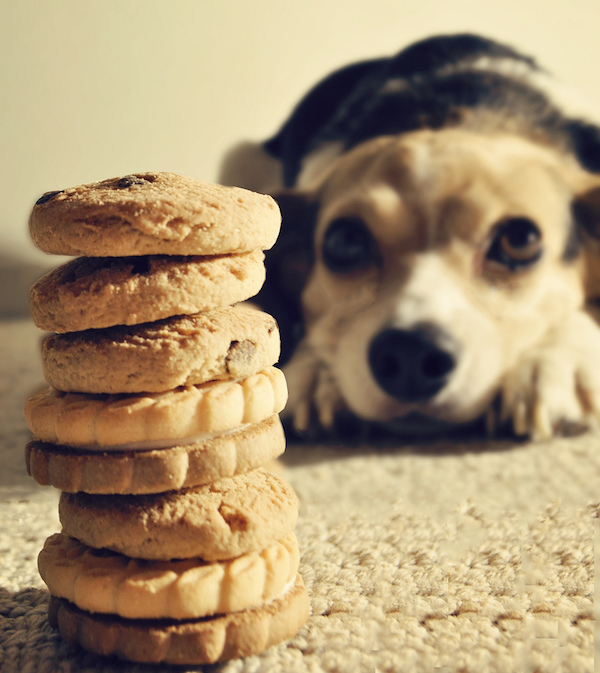
I’ve seen the above statement used and said frequently by my dog clients (and defenders of “balanced” dog training – see my post about “balanced” training here). They have a dog or are working with a dog who actively refuses to eat whatever treats you are providing to them as reward for doing the desired behavior. Let’s look at some of the reasons why that might be.
First, let’s back up a bit and look at why we positive trainers typically use food in the first place. Simply put: All creatures need to eat food. As responsible owners of our dogs it’s our duty to provide food to our canine partners. Food is therefore a desired resource and we fulfill this need of our dog making us too a valuable resource. Once dogs learn that good behavior gets them rewarded, they will repeat the good behavior more frequently in the hopes it too will bring about rewards! Basic learning theory.
Some people incorrectly assume dogs should be “loyal” and do what we ask simply because we asked it. But that’s not how this works. In human terms you can think of this like getting paid for your job. As a kid, when you were learning things, you might have earned a gold star for doing chores or acing a homework assignment. As an adult, you go to work daily and eventually get a nice fat paycheck for your efforts.
So even we don’t “work” for free (even volunteer work provides us with rewards). But eventually we get some reward. It’s no longer instant, like it was as a child while we were learning those chores but it is still there. If you suddenly got less of a paycheck or no paycheck, you’d easily become frustrated and eventually stop working because your reward has stopped. No rewards. No work. Same applies with all creatures.
For dogs, there are some that refuse food while your training. Instead of being frustrated this can be a great signal to you that what your asking is too difficult for your dog and you need to make it easier (most common) or the reward isn’t valuable enough for them considering the challenge you’re asking. Let’s look at a dog example of my own clients dog refusing treats during training.
We were working on doing a desensitization sessions with a client and her dog Bear (name changed). Bear was a reactive Doberman who was terrified of dogs on the walk and would react when she saw them by barking/lunging at them on leash. During one of our first session, I was using my common treat bag on a mix of dog kibble, dried chicken bits and salmon. We were playing the “Look at That” game and as she looked at a dog, we’d mark that behavior with a click from our clicker and she’d get a reward of food. Our first round of this, she took the treat and spat it out. Why?
First thing we should look at is the situation. Here the demo dog was about 50 feet away and walking by sideways staring at Bear. Maybe this distance was too close to her and she was simply too nervous to eat. Maybe Bear was uncomfortable by the dogs stare. A human analogy of this would be if you were put in a the middle of a group of mean looking people armed with guns. I’d approach and offer you $100 bucks. You might take it, you might not. But your focus/priorities are centered around safety, not monetary rewards. The situation is too overwhelming for you to be considered about money.
The other issue was maybe the reward wasn’t highly valued enough for the challenge Bear was facing. Using something like cheese or freshly cooked chicken might result in her focus changing and her being able to eat the treat. You can think of it as the “payment” not being high enough for the work being asked. Imagine you were asked to empty a trailer of boxes into a storage unit. It takes you 5 hours, and you are hot, sweaty and tired. They give you $10 for your efforts. Then ask you to come by next weekend do to the same.
In this case, I asked us to move back a bit. Give her more distance so she’d feel comfortable in taking treats again. She did and her next “Look AT That” got her some yummy cheese!
In my near 12+ years of working with dogs, I’ve never met a dog who didn’t like food. Never. Some also are motivated by other things like toys or tug or a scratch in that good spot, but none have ever not wanted food. Even after they’ve just eaten dinner. If your dog ever refused treats, its a good time for you to take a step back and see what might actually be going on that is causing your dog to be overwhelmed and alleviate that overwhelmedness.

